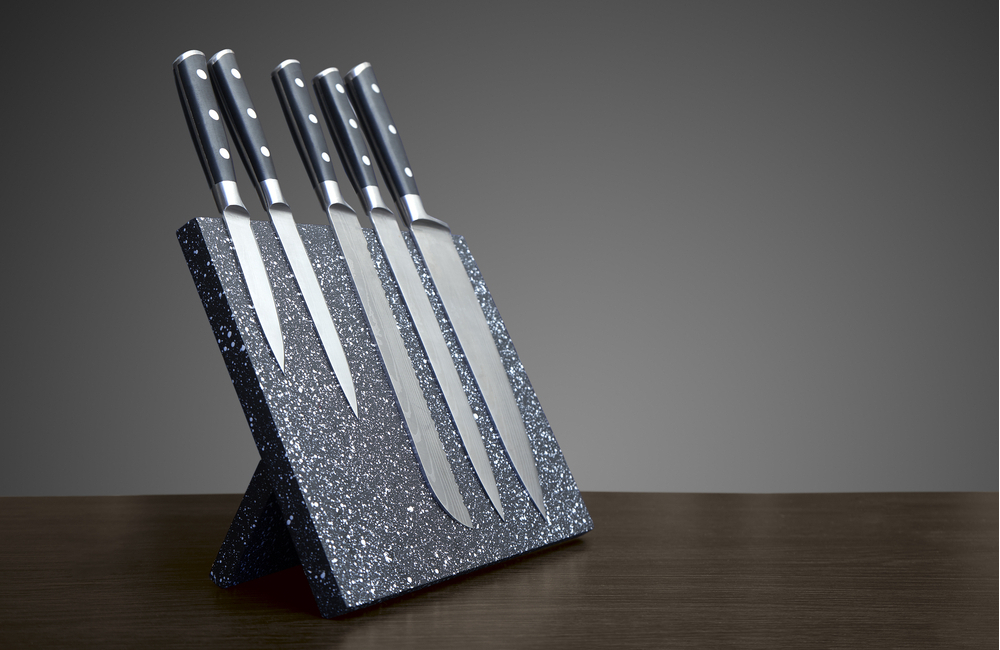Damascus knives have been around us for centuries. These knives have made with renowned Damascus steel. The origin of the term “Damascus Steel” has a legendary aspect to it. According to some accounts, Islamic scholars Al-Kindi and Al-Biruni (circa 800-873 CE) made reference to swords and steel. It was based on their appearance and used the words “damascene” or “Damascus” in their descriptions to a certain extent. Also, many people wonder are Damascus Knives good.
One of the main advantages of owning a Damascus knife is its stunning appearance. A high-end kitchen tool with an appealing aesthetic can externalize your sense of identity into a tangible object. If you can find a Damascus knife made from high-quality materials. Such as layers of high-carbon steel with an inner core of high-carbon specialty steel. You will get an exquisite blade that also guarantees high performance.
These knives are favorite among chefs, hunters, and knife enthusiasts alike. With their unique patterns and exceptional sharpness, it’s no wonder why they’re so popular. You’re looking for a high-quality knife that will last you a lifetime? Damascus knives might just be the perfect fit for you.
Check out our best Damascus Steel Chef Knife Set
History of Damascus knives:
A few centuries ago, the local blacksmiths were popular for their work and considered to be the best in their work. They own a unique art for the construction of steel. They made many gorgeous strong swords in the entire world. To make the blade stronger and more ductile, they heated and folded the steel repeatedly in a unique process. This process involved beating and hammering the steel multiple times. This resulted in an intricate swirl pattern that resembled waves crashing over a beach.
Damascus steel, also known as “wootz” steel, has a long and fascinating history. It originated in the Middle East, specifically in the city of Damascus. This city was a hub of trade and craftsmanship during the medieval period. Damascus steel blades were highly valued for their sharpness, strength, and durability. These blades were also highly prized for their beauty, with their distinctive pattern.
The production of this steel declined in the 18th and 19th centuries, and the original process was lost. However, in recent years, attempts have been made to recreate the process. Today, Damascus knives are famous among enthusiasts for their beauty and historical significance.
Impressive style & durability:
Not only do these blades provide sharpness and strength but also they contain an impressive blade look. By heating and folding the steel multiple times, a unique and intricate “swirl” pattern was created. These blades not only had exceptional performance but also had a visually appealing appearance. They could withstand usage that would easily chip and damage other blades.
But with time the original technique has washed away ages ago. Despite all the uncertainties, one fact remains indisputable these blades gained renown. For their remarkable performance and visually striking appearance.
But with the advancements in technology, these kinds of blades we routinely produce today. However, modern-day blacksmiths are improving the quality of this steel and consuming it in a better way. They have made knives with it that are commonly used for household purposes. These knives are both impressive in style and much sharpen than other knives. It maintains its durability even after the ages and changes in technology.
Benefits of Damascus Steel knives:
We have uncovered the truth behind the Damascus steel knives. They are typically made with a different steel cutting core and clad with Damascus steel. We can discuss the primary advantages of owning such knives.
However, it’s worth noting that high-quality materials come with a larger price tag. Also, not every Damascus knife will be suitable for everyone. It’s a personal choice based on your preferences. But if you use your knife regularly and require a sharp and durable tool. Then this knife could be an excellent choice for you.
Caring for Damascus Knives:
Once you have planned to get a Damascus knife, you’ll want to protect it to use it for a long period. Proper care and maintenance are essential to keep your knife in top condition. Here are some tips to ensure its productivity remains for a long time:
- Clean your knife after each use. Use warm water and mild soap to remove food or debris from the blade.
- Dry your knife thoroughly after cleaning to prevent rust and corrosion.
- Store your knife in a dry, cool place. Avoid storing it in a sheath or leather wrap.
- Sharpen your knife regularly using a sharpening stone or honing rod.
- Avoid using your Damascus knife to cut through hard or frozen foods, as this can damage the blade.
Kitchen knives that use Damascus steel:
After learning about Damascus Steel’s history, appearance, and maintenance. Let’s explore some of the top kitchen knives available in the market that use this steel.
Chef’s Knife:
A versatile kitchen knife used for chopping, slicing, and dicing. Damascus steel is used to make many high-end chef’s knives; this features an intricate pattern adding to their beauty.
Pros:
- A chef’s knife is Versatile and can be used for a wide range of tasks, such as chopping, slicing, and dicing.
- The large blade allows for the efficient cutting of large ingredients.
- Typically made from high-quality materials, such as Damascus steel.
Cons:
- It can be expensive.
- Large size may make it difficult to control for some users.
Bull nose butcher knife:
This magnificent bull nose butcher knife easily slices through flesh. It breaks through cartilage, and trims fat from beef, poultry, pork, fish, and other meats. It sails through meat without causing any damage, thanks to its expert design.
Pros:
The rounded tip of a bullnose butcher knife makes it safer and easier to use.
Bullnose butcher knives are versatile and can be used for a wide range of tasks. Such as slicing, chopping, and trimming meats.
The curved blade of a bullnose butcher knife allows for efficient cutting and slicing
Cons:
- The bullnose butcher knife may limit its precision when it comes to certain tasks.
- Like any knife, a bullnose butcher knife requires regular maintenance to keep it in good condition.
Carving knife & fork set:
If you’re a BBQ or home grilling enthusiast, you must have a carving knife & fork set. The 9″ carving knife and fork make slicing brisket and ham effortless and perfect. Here are some of its pros and cons:
Pros:
- The Ergonomic handles make carving knife and fork sets easy to grip and handle during meat cutting.
- A carving knife’s sharp blade and fork stabilize meat while cutting.
- Further, using a carving knife and fork set can add a touch of elegance to your dinner table.
Cons:
- Carving knife and fork sets are not versatile as they are primarily for meat.
- Maintain carving knife and fork sets with regular cleaning and sharpening after each use.
Frequently Asked Questions:
Are Damascus knives good?
Damascus knives are popular for their exceptional sharpness, durability, and beauty. Also, they consider among the best knives in the world. The unique pattern on the blade surface not only provides an aesthetic appeal but also adds strength and resilience. Both professional chefs and home cooks alike prefer them.
What is Damascus steel and how it makes?
To make a Damascus steel knife, one needs to layer and forge Damascus steel. The process involves heating and hammering the layers of steel until they integrate. This creates a unique and beautiful pattern on the blade. To achieve sharpness and durability, Damascus knives use high-carbon steel. While low-carbon steel adds flexibility and toughness. After the formation of the blade, we need to sharpen and polish the blade.
What to Look for when shopping for a Damascus Knife?
When shopping for a Damascus knife, look for the type of steel used in it. Also, check the number of layers and the quality of the craftsmanship. High-quality Damascus knives can make from high-carbon and low-carbon steel layers. The craftsmanship should also be precise, with attention paid to the blade’s shape, edge, and handle.
How to spot a fake Damascus knife?
To spot a fake Damascus knife, look for inconsistencies in the pattern of the blade. Also check the lack of sharpness or durability, and low-quality materials or craftsmanship. A true Damascus knife will have a consistent and intricate pattern on the surface of the blade. High-quality steel is used to make Damascus knives that maintain a sharp edge for a long time.
Are Damascus knives only for professional chefs, or can home cooks use them too?
Damascus knives are suitable for both professional chefs and home cooks. One can use Damascus knives for various cutting tasks in the kitchen due to their versatility. However, these knives may be more expensive than other types of knives. But this investment can provide many years of use and enjoyment for anyone who appreciates quality cutlery.-

